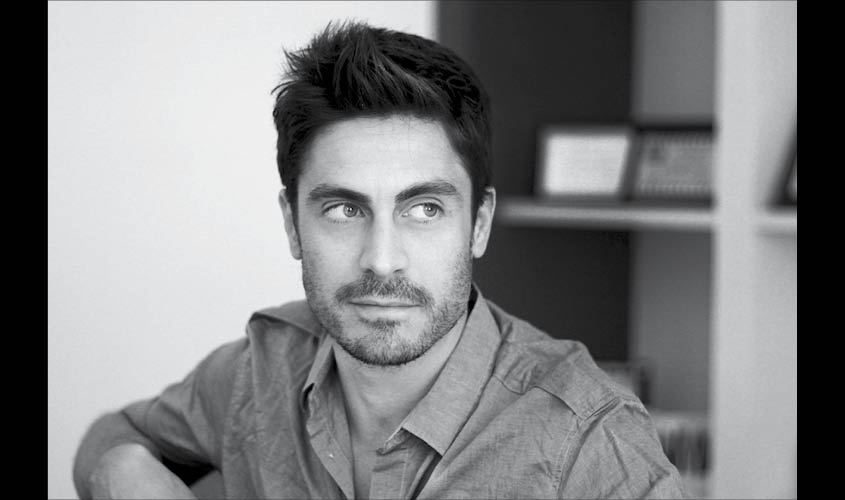Italian filmmaker Salvatore Allocca speaks to Murtaza Ali Khan about the screening of his recent film Taranta on the Road in Guwahati, and his attachment to the subject of migration.
Italian filmmaker Salvatore Allocca was recently in India to attend the 2nd Guwahati International Film Festival (GIFF), where his second feature film, Taranta on the Road, was screened in the World Cinema section. Allocca’s short film The School Trip had won the Best Director and Best Cinematography awards in the “MigrArti” section at the 2018 Venice International Film Festival, back in September. Interestingly, both these films revolve around the issue of immigration. While Taranta on the Road focuses on the struggles of two Tunisian refugees who swim across the Mediterranean to Italy seeking asylum, The School Trip tells the story of a 14-year-old daughter of an immigrant family from Senegal living in Italy.
In this interview, Allocca talks about the response that his film Taranta on the Road got at the GIFF, his Indian connection, and his approach to filmmaking.
Q. Your short film The School Trip won two awards at the 75th Venice International Film Festival competing in the “MigrArti” section. What kind of cinema does this section consider?
A. The School Trip won the awards for the best director and the best cinematographer. The Venice International Film Festival’s MigrArti section, in which the film won, is an initiative by the Italian government to finance cinema and entertainment projects dedicated to the different cultures present in Italy today, in particular the second-generation youngsters from immigrant communities settled in Italy.

Q. The issue of migration is a central theme of your works. What makes you feel so strongly about it?
A. In Italy we have a lot of refugees from countries facing war or war-like situations. Also, a lot of people come from Africa, searching for work, in the hope of a better life, better future. You see, Italy is in the middle of Mediterranean Sea and so it is often not the final desination for the refugees who pass though it in order to reach other European countries. But since other borders have now been locked, they are forced to stay back in Italy. Ever since the time of the Arab Spring, the issue of immigrants has grown in signifiance for the people of Italy. As a filmmaker I feel responsible to address the issue in a humanistic manner. Just because someone is born on the other side of the Mediterranean, it doesn’t mean he or she does’t have the right to live a good life.
Q. Your film Taranta on the Road has been travelling all around the globe. How was the response to the film after the recent screening in Guwahati?
A. To tell you the truth, I was really surprised to see the kind of response the film got. There was a natural connect with the film’s subject. Perhaps, it has to do with the fact that in India internal migration happens all the time. Some of the viewers present at the screening even shared their own experiences of migrating from one part of the country to another in the hope of better prospects.
Q. Tell us about the kind of research that goes into the making of your films, especially since they are are so closely influenced by realty.
A. For me the research begins with reading a lot of articles. Then I like to interview people and record their responses. Back in 2011, during the Arab Spring, I talked to a lot of immigrants who came to Italy from North Africa. The experiences they narrated helped me add real traits to my characters in Taranta on the Road. It also helped me understand their sensibilties and aspirations. Similarly, for The School Trip, I interviewed a lot of different people across Italy. Many of them narrated their experiences and it occurred to me that many second-generation youngsters from the immigrant community are subjected to prejudice of some kind or the other, despite Italy being a multicultural, liberal country.

Q. You have had the experience of making both feature length as well as short films. How different is one from the other, from the storytelling point of view?
A. For me the process is really the same. It starts with research followed by writing the screenplay. However, the major struggle while making a short film is to be able to tell the story in just a few minutes. Also, capturing the audience’s attention can be a bit tricky with a short film as there is hardly any breathing space in the narrative and so you either have the audience with you or you don’t.
Q. You have been in India a few times now. A lot of filmmmakers from David Lean and Richard Attenborough to Wes Anderson have tried to capture India though their lens. What according to you makes India a fascinating subject?
A. I share
Q. What are your thoughts on Indian cinema? Who are your favorite filmmakers and actors?
A. In the recent times I have been studying Indian cinema very closely. I have been fascinated by the variety on offer. Some of the films that I have really liked are Chaitanya Tamhane’s Court, Ritesh Batra’s The Lunchbox, and Anurag Kashyap’s Gangs of Wasseypur. Also, I have found the work of Nawazuddin Siddiqui really fascinating in almost every film that I have seen. I also adored him in Sacred Games. I am in awe of his work and just can’t seem to get enough of him. I have learned so many Hindi cuss words just from watching him play Gaitonde.

